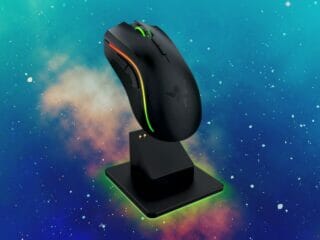
Startup Aurora, founded by ex-Googlers, is making waves in the tech world after it announced its plans to purchase Uber’s self-driving car unit. This move is part of their mission to accelerate their self-driving car development.
As a result of this acquisition, Aurora has become one of the leading players in the world of autonomous vehicle tech and software. With the help of Uber’s technology and expertise, Aurora aims to set itself apart from the competition and become a leader in the autonomous vehicle industry.
Startup Aurora, founded by ex-Googlers, to purchase Uber’s self-driving car unit
Startup Aurora, based in Palo Alto, California, was founded in 2016 by a team of three ex-Google employees – Chris Urmson (CTO), Sterling Anderson (head of product at Tesla) and Drew Bagnell (worked on autonomous vehicles at Uber). The company is focused on building self-driving car systems using global mapping data and sensor technologies. Aurora’s mission is to develop fully autonomous vehicles that are safe, efficient and cost-effective.
Aurora has established relationships with major automakers with an eye toward large scale deployment within the near future. The company has completed testing its technology on public roads since 2017. In addition, it has partnerships with Volkswagen, Hyundai-Kia Motors and Chinese search engine Baidu Inc. to supply self-driving technology for their cars.
On October 20th 2020, it was announced that Aurora will purchase Uber’s self-driving car unit which includes their advanced driver assistance systems and other related patents and intellectual property. This purchase will allow Aurora to accelerate its self-driving car development by expanding the platform further into mass production vehicle usage in the near term. With this key acquisition of Uber’s technology, experts believe that this acquisition could potentially propel Aurora into one of the most successful players in the ever competitive autonomous vehicle market space.
Overview of Uber’s self-driving car unit
Uber’s self-driving car unit, previously known as the Advanced Technologies Group (ATG), was founded in 2015 with the vision of safely deploying self-driving vehicles on roads. Uber created a specialised software platform called Advanced Technologies Stack (ATS) that operates and navigates self-driving vehicles to fulfil its vision.
Aurora has become the latest company to leverage Uber’s ATG technology to accelerate its autonomous vehicle development efforts. Uber has agreed to sell ATG to Aurora for an undisclosed amount. However, Aurora is believed to be investing around $4 billion into the self-driving car unit.
As part of the transaction, Aurora will have access to hundreds of proprietary algorithms, sensors, and other software developed over five years at Uber’s Advanced Technologies Group. Additionally, it will gain access to approximately 200 employees of ATG, many of whom were previous staff members at Google’s “self-driving car project” and Alphabet’s Waymo before joining Uber.
Aurora’s purchase of this sizable asset signals a major milestone in its ambitious quest for developing fully autonomous vehicles for personal, commercial or mass transportation markets. However, with technologies from startups and industry leaders like Google and Tesla already at work on similar projects, time will tell whether or not Aurora’s acquisition proves successful in furthering autonomous driving development.
Aurora’s Plans
Startup Aurora, founded by ex-Googlers, recently announced its plans to purchase Uber’s self-driving car unit to accelerate its self-driving car development.
With Uber’s technology and expertise in the field, Aurora will be able to expedite its self-driving car development to the public market.
The following article will discuss Aurora’s plans in more detail and what this acquisition means.
Benefits of the acquisition
Startup Aurora, founded by ex-Googlers, has announced plans to purchase Uber’s Advanced Technologies Group (ATG), the company’s self-driving car unit. The acquisition of the self-driving car unit will accelerate Aurora’s development of its self-driving technology and allow it to move forward quicker with its autonomous vehicle development.
Aurora will gain access to Uber ATG’s talents and technologies, including their hardware and software components, simulation models, intellectual property related to SLAM and deep learning systems, real-world testing experience from Pittsburgh, San Francisco and Toronto as well as access to key supply chain vendors for all critical components for autonomy. More importantly, the acquisition is expected to provide many benefits for Aurora. These include:
- An experienced team of engineers in the field of mapping and sensing technologies;
- Access to high quality real world test data;
- Sophisticated cloud setup that allows easy data sharing across various divisions;
- Automation tools that can help design services quickly;
- Source code from Uber’s advanced engineering projects such as their Driverless AI project;
- Shift in focus from the research & development phase onto delivering commercial autonomous vehicle solutions faster.
This strategic move by Aurora presents a great opportunity for both companies in the short term and long term perspectives. This will likely bring more investments into this space leading to a competitive edge for Aurora versus other technology players in this market.

How Aurora plans to use Uber’s technology
Startup Aurora, founded by former Google engineers, has announced that it is in advanced talks to acquire Uber’s self-driving car unit. The acquisition of Uber’s autonomous vehicle technology could significantly accelerate the development of self-driving cars for Aurora, allowing them to enter the race more quickly and with more resources than before.
Aurora plans to take advantage of Uber’s experience and expertise in developing autonomous vehicles by using the existing technologies such as: machine learning algorithms, sensing systems, mapping solutions and safety protocols. By integrating these into their development they will be able to quickly get up to speed with their competitors and develop the necessary capabilities to make their product stand out from the rest.
Furthermore, they plan on utilising different aspects of Uber’s technology for parts of its future autonomous vehicles. For example, it has recently confirmed its plans to integrate certain elements currently used in Uber’s robotaxi fleet, such as automatic emergency braking systems and advanced driver-assistance features (ADAS), including lane centering or self-driving configurations for public roads into their cars. This will help bridge some gaps in mapping discrepancies seen between different models from other manufacturers due to overlapping information provided by various suppliers.
Aurora is closely watching various new partnerships emerging between rivals like Argo AI and Ford or General Motors respectively as a source of inspiration on accelerating its development process while ensuring that its end product makes headway into the increasingly competitive marketplace. Its current aim is set firmly towards 2021 when they plan on finally creating commercially available autonomous vehicles that can compete against existing models.
Implications of the Acquisition
Start-up Aurora, founded by ex-Googlers, has announced its plans to purchase Uber’s self-driving car unit. This acquisition has considerable ramifications for the autonomous vehicle (AV) sector. It could accelerate Aurora’s AV strategy, create synergy between their already-established partnerships and technology, and open up new opportunities for Aurora going forward.
Let’s take a closer look at the implications of this move.
Potential impact on the self-driving car industry
The acquisition of Uber’s self-driving car unit by startup Aurora, founded by ex-Googlers, can potentially cause big changes in the self-driving car industry.

First, the acquisition could be seen as a positive development; it may help to encourage more innovation and competition in the self-driving car space. With more resources and experienced team members now available to Aurora, they will be in a better position to develop cutting-edge technologies enabling them to take advantage of market opportunities.
It is also possible that this purchase could have anticompetitive effects; for example, if Aurora uses its new assets to create an insurmountable competitive moat or keep new entrants out of the field. In addition, this deal may lead to other large tech companies feeling pressure to acquire similar capabilities and thus increase acquisition prices for smaller firms operating in the same space.
Finally, Uber’s decision to sell its self-driving car unit could spark much needed conversations about ethics and safety concerns raised by autonomous vehicles. Such conversations can quickly make their way from major tech companies into mainstream publications and eventually shape public attitudes towards self-driving cars and national or global policy responses.
Potential competition between Aurora and other self-driving car companies
Aurora’s recent acquisition of Uber’s self-driving car unit has implications beyond the immediate gain of technology and intellectual property. This move could benefit Aurora significantly in the long run as they stand to gain an edge over other companies in the self-driving car industry. This move could put them ahead of the competition in terms of technological development and further entrench them as a leading player within this industry.
As such, Aurora’s purchase is likely to spur further developments from competing companies working on their autonomous vehicle systems. Companies like Tesla and Waymo have been working on autonomous technologies. Given Aurora’s new advantage, it is safe to assume that this acquisition will cause them to heighten their efforts even more. As Aurora has successfully acquired Uber’s unit, which included 200 employees working on artificial intelligence (AI) for autonomous driving, other competitors must focus resources on their AI capabilities and ultimately compete against Aveorra’s increased prowess in this field.
The increase in competition between these services could be a good thing, however — it means faster developments with better technologies while being aware of market demand — rather than just being content with being first out the gate (pardon the race car analogy). It also means consumers have more choices when selecting where they purchase their vehicle or self-driving services. Therefore, Aurora’s move may bring opportunities beyond those launched by its venture into autonomous technology.
Conclusion
Startup Aurora’s purchase of Uber’s self-driving car unit marks a significant milestone for both companies. Aurora was founded by ex-Googlers and has been working to develop its self-driving car technology. With this purchase, Aurora plans to use Uber’s technology and knowledge to speed up its research and development in this field.
In this article, we will discuss the potential implications of this purchase and what it could mean for the future of self-driving car technology.
Summary of Aurora’s plans
Startup Aurora, founded by former Google engineers Chris Urmson, Sterling Anderson, and Drew Bagnell, has agreed to purchase Uber’s self-driving car unit. The acquisition is a major step in Aurora’s efforts to develop fully autonomous vehicles for use on public roads.
Aurora plans to use the technology it acquires from Uber as part of its suite of products and software to rapidly accelerate the development of its self-driving technology. Aurora already operates several autonomous test cars in several states including California, Arizona and Pennsylvania. The company also has plans to expand testing elsewhere in the coming months.
The startup will now leverage Uber’s existing technologies and engineering team to expedite Aurora’s mission of safely bringing autonomous cars onto public roads. With its new abilities and resources, Aurora will be better positioned to further develop its autonomous vehicle system in preparation for deployment on city streets around the globe.

Future of self-driving car technology
The acquisition of Uber’s self-driving car unit by startup Aurora puts forward a bold step into the world of self-driving cars. With well-established names like entrepreneur Chris Urmson and Tesla’s former Autopilot lead Sterling Anderson, Aurora is well-positioned to become a leader in self-driving technology.
This move signals that Aurora has big plans for the future of autonomous transportation and autonomous vehicle technology. Additionally, the combination of Uber’s advanced technology and Aurora’s innovative team could accelerate the development and usage of self-driving cars.
Aurora’s mission is to deliver safer transportation through autonomous vehicle technology, demonstrating its commitment to achieving that goal. This new team hopes to revolutionise how people get around cities and work towards providing safe mobility solutions for generations to come.
“
tags = Startup Aurora, founded by ex-Googlers, Uber, self-driving car unit, Dara Khosrowshahi, aurora uber toyotaboudwaybloomberg, $400, Google self-driving, Amazon
“





